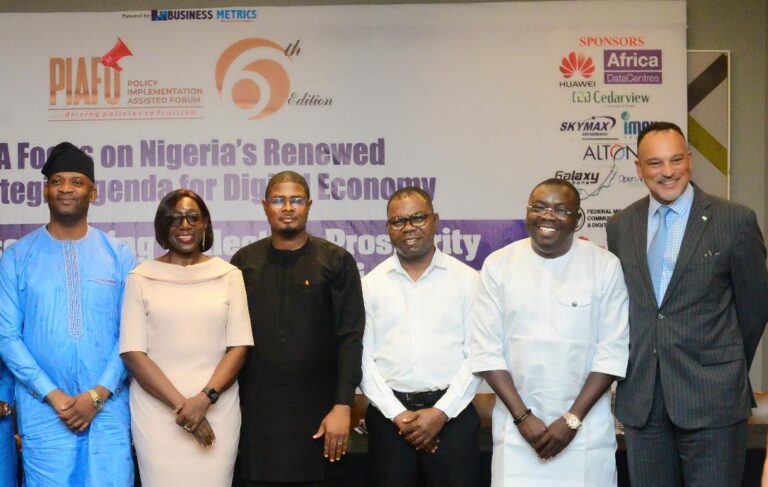While attendees at the Sixth Edition of the Policy Implementation Assisted Forum (PIAFO) in Lagos on Wednesday acknowledged the Nigerian government’s ambitious plan to lay 90,000 kilometers of fibre optic cables across the country, they have also raised concerns about overcoming obstacles posed by state governments.
They believe that the initiative’s potential to boost the digital economy is huge, but argue that the issue is the high cost of obtaining Right of Way (RoW) permits, which are controlled by state governments.
Stakeholders argue that these fees, coupled with additional taxes and levies, could cripple the project. They urged a shift in perspective, emphasizing that facilitating infrastructure development is crucial for state growth in the digital age.
Another challenge identified is the disruption caused by road construction and vandalism.
The forum explored potential solutions, with some suggesting a stronger private sector role in project execution, potentially funded by the World Bank. Collaboration and clear policy are seen as critical to success.
Learning from past failures and ensuring a focus on delivering meaningful broadband penetration were also highlighted as important factors.
Ultimately, the forum emphasized the need for all stakeholders, including state governments, to work together to create an enabling environment for this transformative project.
Presenting a paper on the topic, ‘Harmonizing Nigeria’s Fibre Deployment Strategies for Effective Implementation’, Executive Director of Broadbased Communications, Mr. Chidi Ibisi, said while the government’s SPV initiative is a good plan that could help the country bridge its current digital infrastructure gap, the government would need to address current challenges.
“The issues of high cost of Right of Way (RoW), destruction of fiber by road construction companies and vandals all need to be addressed for this new SPV initiative to be successful,” he said.
Also highlighting some of the challenges telecom operators face when deploying infrastructure, the Group Chief Operating Officer of WTES Projects Limited, Mr. Chidi Ajuzie, said the biggest challenge to fibre cable laying in Nigeria is the informal RoW by hoodlums in states.
“For states, a formal right of way is set and some states are adopting it but the informal side of the right of way is where the complexity has come today,” he explained.
Role of state governments
According to the Chairman of the Association of Licensed Telecommunications Operators of Nigeria (ALTON) Engr. Gbenga Adebayo, for the 90,000 kilometres fibre project to succeed, the state governments have to take ownership.
“For the project to succeed, I think the governments at sub-nationals should take ownership. This issue of state governments seeing right of way as IGR should be a thing of the past. We can’t talk about the digital economy on one side and the government is seeing those who provide the services as sources of revenue.
On his part, Dr. Ayotunde Coker, the Chief Executive Officer of Open Access Data Centre (OADC) stressed the need for the fibre project to be executed by the private sector even as the World Bank is expected to fund it with up to $3 billion.
He said: “The World Bank can put money into the government but it needs private sector partnerships as the execution engine and that’s what we’ve been pushing in Africa.”
Earlier in his opening address, the convener of PIAFo, Mr. Omobayo Azeez, said the conference was to create a midpoint dialogue platform for digital economy stakeholders across both the public and private divides to brainstorm, exchange perspectives, clear grey areas, harmonize thoughts and create a sense of collective responsibility towards accelerating our collective prosperity through technical efficiency.
The event focused on Nigeria’s renewed strategic agenda for the digital economy. According to him, the new digital economy blueprint of the federal government does not only sustain existing policy directions and targets, “it also challenges us on the possibilities of attaining new frontiers with a view to “Accelerating Our Collective Prosperity through Technical Efficiency” which is the theme of the summit.




